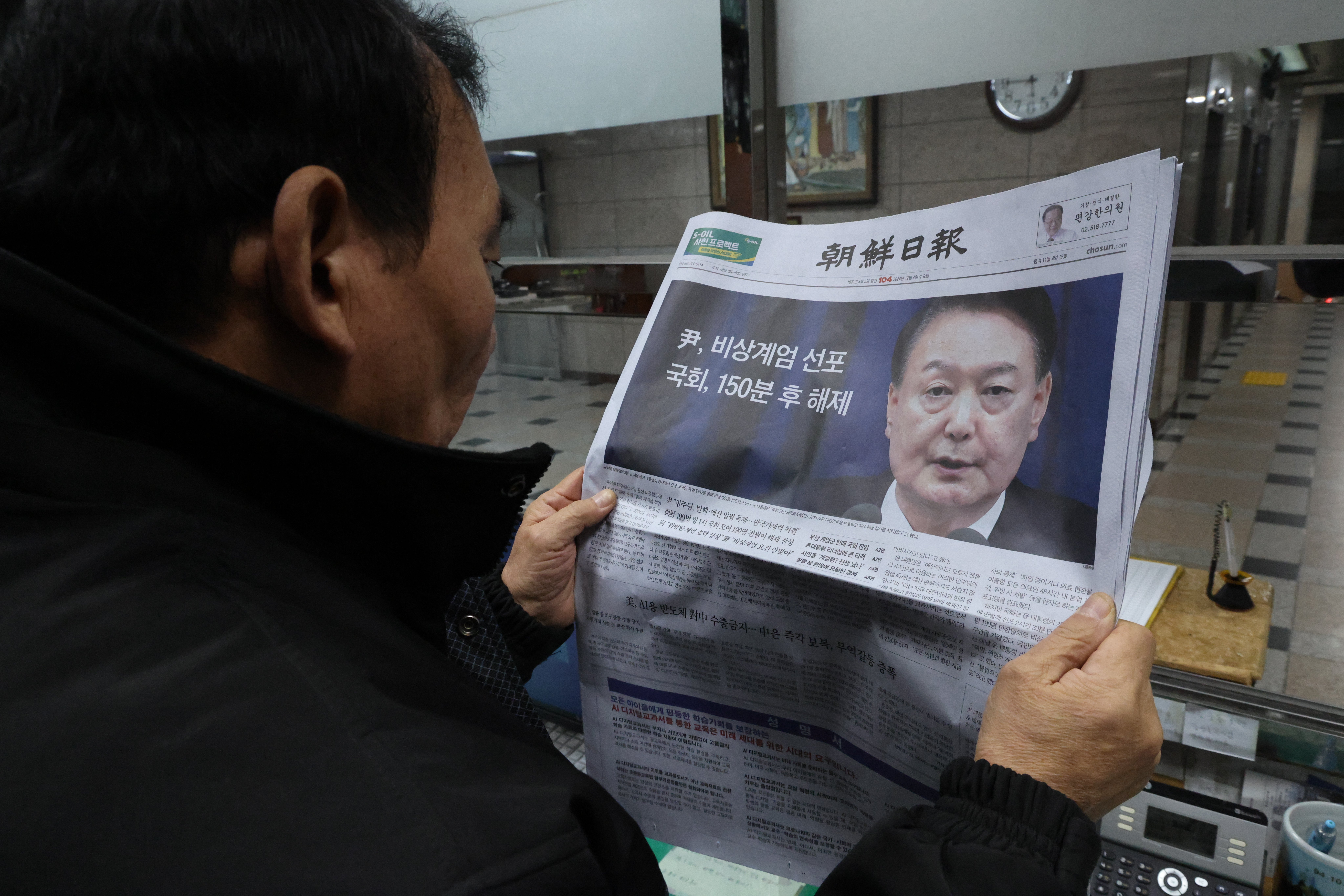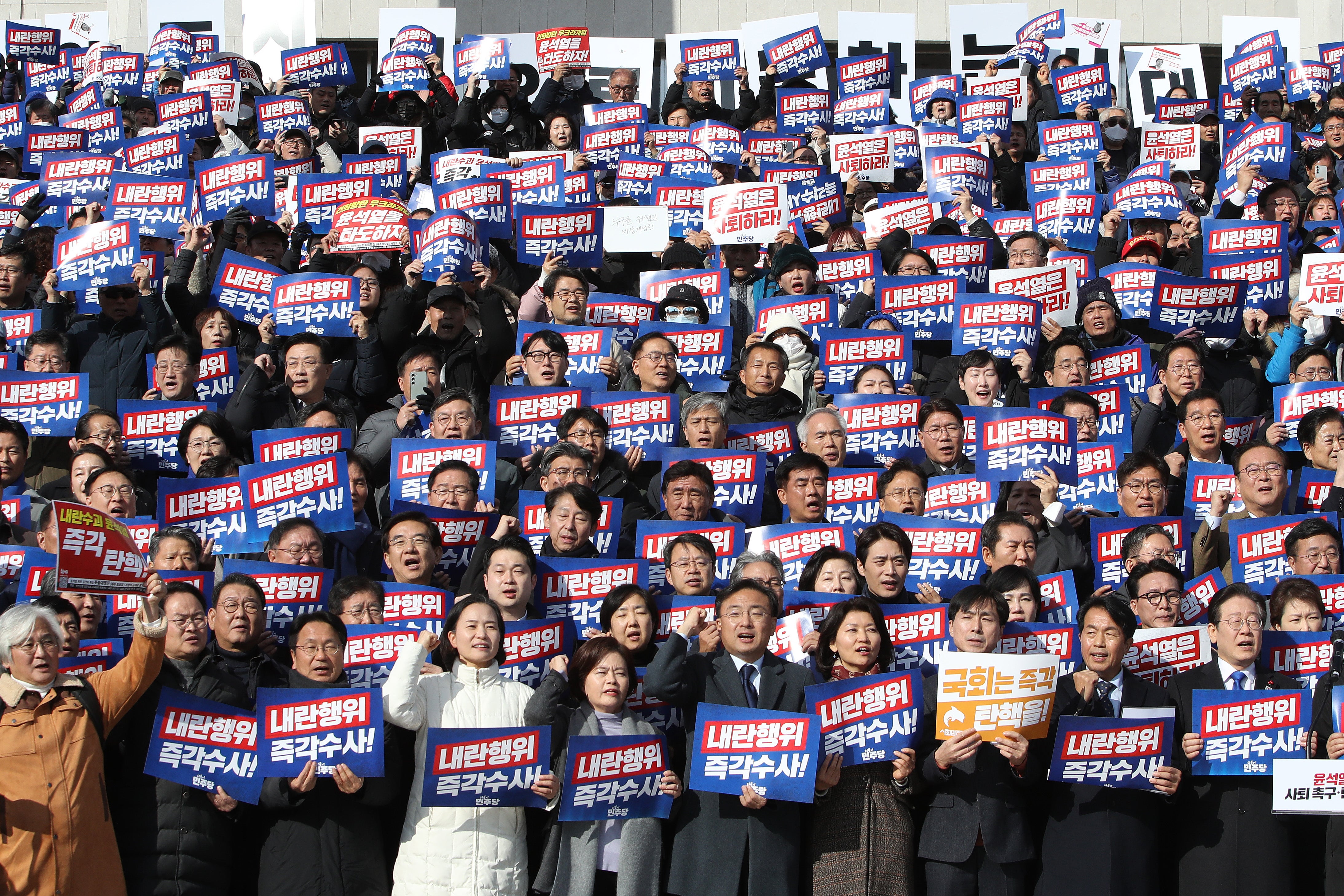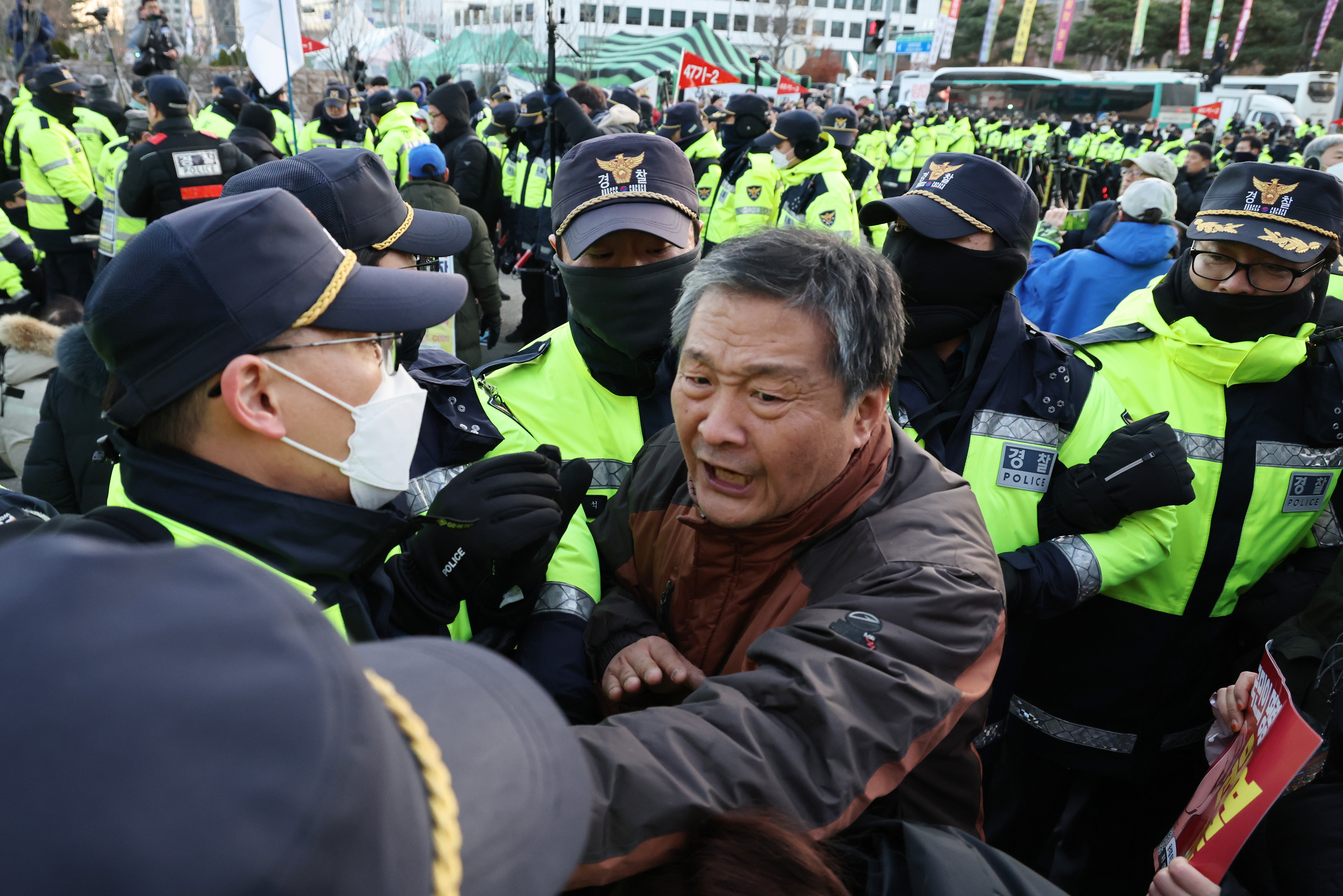South Korean president Yoon Suk Yeol declared martial law on Tuesday evening but lifted it within hours after backlash and a parliamentary motion from opposition lawmakers and members of his own party.
He justified the decree as targeting “anti-state actors” allegedly sympathetic to North Korea but it promptly triggered clashes between the military and protesters outside the National Assembly in Seoul.
The parliament moved quickly to annul the declaration, with 18 members of Mr Yoon’s ruling party voting with the opposition.
CCTV footage released on Wednesday showed South Korea’s parliament gripped by chaos during Mr Yoon’s brief martial law. Staffers used sofas and fire extinguishers to keep out soldiers armed with assault rifles and night-vision goggles attempting to storm the National Assembly.
Heavily armed troops arrived by helicopters and scaled the fence, smashing windows to force their way in after midnight, the footage showed.
National Assembly secretary general Kim Min-ki condemned the actions as “unconstitutional and illegal”.
The world watched in disbelief as South Korea was thrown into a crisis by the president’s declaration. The US expressed relief after Mr Yoon reversed his declaration.

A White House official said that “democracy is at the foundation” of America’s alliance with South Korea and that it was “seriously concerned” before the reversal. “We are relieved president Yoon has reversed course on his concerning declaration of martial law and respected the National Assembly’s vote to end it.”
The official said they would continue to monitor the situation.
The US embassy in Seoul issued an emergency alert on Wednesday advising American visitors to exercise caution. The situation remained “fluid” after Mr Yoon’s martial law declaration was overturned by the National Assembly, it said.
“US citizens should anticipate potential disruptions. When in public, you should pay attention to your surroundings and exercise routine safety precautions,” the embassy was quoted as advising by Yonhap news agency.

Britain’s minister for the Indo-Pacific, Catherine West, urged “a peaceful resolution to the situation in accordance with the law and the constitution of the Republic of Korea”.
She said the UK embassy in Seoul was monitoring the situation and engaging with Korean officials. “The UK is deeply concerned by the events in South Korea on the 3rd of December,” she said, asking Britons in the country to monitor and follow travel advice from the Foreign Office.
South Koreans, meanwhile, took to the streets on Wednesday to demand the president’s resignation. The protesters gathered at the Gwanghwamun Square and outside the National Assembly in Seoul, holding signs like “Restore Democracy” and “Investigate his act of rebellion immediately”.
Opposition parties filed an impeachment motion and a vote could take place as soon as Friday.

Nato secretary general Mark Rutte said on Wednesday the military alliance was monitoring the situation in South Korea while emphasising that their relationship with the country was “ironclad”.
“We are interested in how the situation may develop further,” he said. “Our relationship with South Korea is key, our relationship with South Korea is ironclad.”
Russia was monitoring the situation with concern, foreign ministry spokeswoman Maria Zakharova said but added that there was no threat to Russian citizens there, Reuters reported.
“The situation on the Korean peninsula is already complicated by the provocative actions of the United States of America and its allies,” she added.
The South Korean Metal Workers’ Union announced a full strike on 11 December unless president Yoon stepped down, Yonhap reported.







